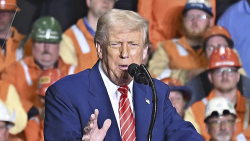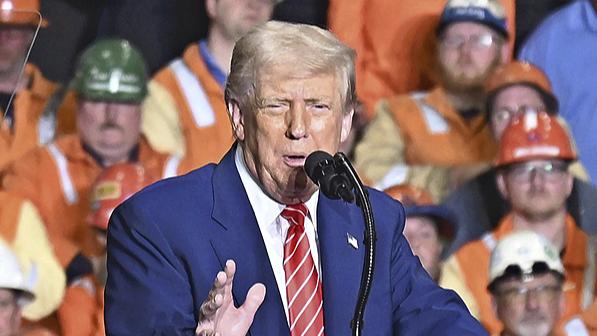PBS Files Lawsuit Against Trump Administration Over Executive Order Cutting Funding
PBS sues Trump over federal funding cut, calling it an unconstitutional attack on public television


The Public Broadcasting Service (PBS) has launched a legal challenge against President Donald Trump following the issuance of an executive order aimed at cutting federal funding to the network. The lawsuit, filed on Friday in a Washington, D.C. federal court and joined by a Minnesota-based public TV station, claims that the president's directive constitutes a direct violation of the First Amendment. According to the complaint, the order risks making the president the ultimate "arbiter" of programming content, raising serious concerns about government overreach into the editorial independence of American public media.
In its filing, PBS asserted that the executive order, signed on May 1, explicitly targets the organization due to the perceived content of its broadcasts. The complaint underscores, "That is blatant viewpoint discrimination." It states that the order seeks to alter PBS programming by financially coercing compliance, an action that PBS warns could "upend public television" and undermine the free flow of information and diverse viewpoints long fostered by the public broadcaster.
The controversial directive instructs the Corporation for Public Broadcasting—a taxpayer-funded body—to halt federal support for both PBS and National Public Radio (NPR). All three organizations operate as non-profits and have historically relied on federal funds to support operations. PBS noted that the Corporation for Public Broadcasting currently supplies approximately 16 percent of its $373.4 million annual budget. The impact of the funding cut would extend far beyond just the national service, with local member stations—also dependent on federal dollars—collectively contributing 61 percent of PBS's operating budget through dues.
A White House spokesperson, Harrison Fields, defended the administration’s position, stating that the Corporation for Public Broadcasting "was creating media to support a particular political party on the taxpayers' dime." Fields added, "Therefore, the President is exercising his lawful authority to limit funding to NPR and PBS."
NPR, another major recipient of public broadcasting funds, has also responded with legal action, filing its own lawsuit earlier this week in an effort to block enforcement of the executive order.
The dispute comes at a time when public media organizations across the nation face increasing scrutiny and political pressure. Supporters of PBS and NPR warn that the executive order, if enacted, could have devastating effects on communities that rely on public broadcasting for educational programming, news, and cultural coverage. As the litigation moves forward, the future of federally funded public television—and its cherished role in American society—remains uncertain.




